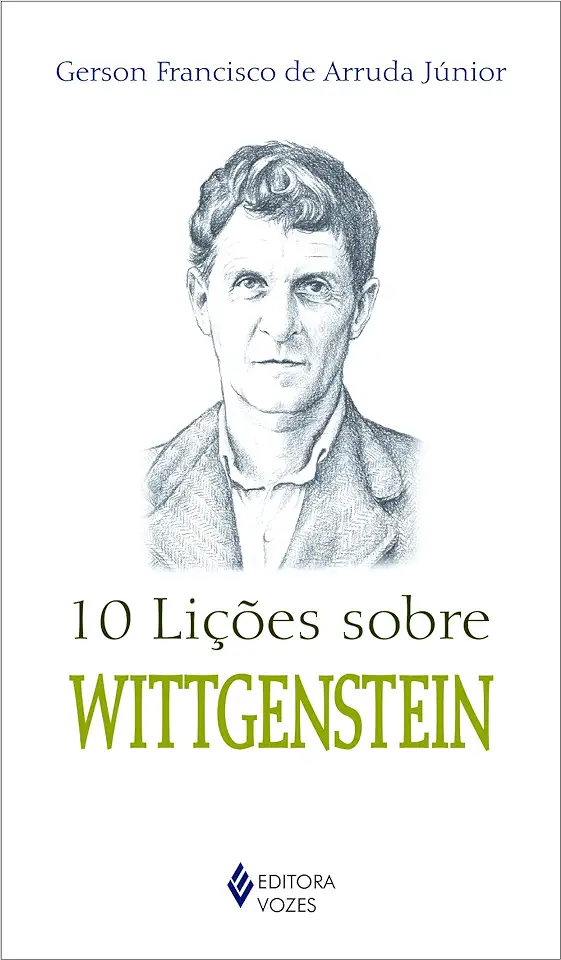
10 Lessons on Wittgenstein - Gerson Francisco de Arruda Júnior
10 Lessons on Wittgenstein: A Comprehensive Guide to the Philosophical Genius
Introduction
In the realm of philosophy, few names shine as brightly as Ludwig Wittgenstein. His profound insights and revolutionary ideas have left an indelible mark on the intellectual landscape of the 20th century. In his book "10 Lessons on Wittgenstein," Gerson Francisco de Arruda Júnior presents a comprehensive and engaging exploration of Wittgenstein's philosophical legacy. This book is an essential companion for anyone seeking to delve into the depths of Wittgenstein's thought and gain a deeper understanding of his contributions to philosophy.
Chapter 1: The Early Wittgenstein and the Tractatus Logico-Philosophicus
The book begins by introducing the early Wittgenstein and his seminal work, the Tractatus Logico-Philosophicus. Arruda Júnior provides a clear and concise explanation of Wittgenstein's theory of language, his distinction between saying and showing, and his famous picture theory of meaning. Through these concepts, readers gain insight into Wittgenstein's early philosophical framework and the foundation upon which his later work would build.
Chapter 2: The Later Wittgenstein and Philosophical Investigations
In the second chapter, Arruda Júnior shifts the focus to Wittgenstein's later work, particularly his Philosophical Investigations. Here, readers are introduced to Wittgenstein's concept of language games, his critique of traditional philosophical methods, and his emphasis on the practical use of language. Through engaging examples and thought-provoking discussions, Arruda Júnior demonstrates how Wittgenstein's later philosophy challenges conventional notions of meaning, truth, and knowledge.
Chapter 3: Wittgenstein on Mind and Consciousness
The third chapter delves into Wittgenstein's exploration of the mind and consciousness. Arruda Júnior examines Wittgenstein's critique of the Cartesian dualism and his alternative view of the mind as embedded in our linguistic practices. Through a careful analysis of Wittgenstein's writings, the author sheds light on the complex relationship between language, thought, and experience, offering a unique perspective on the nature of consciousness.
Chapter 4: Wittgenstein on Ethics and Value
In chapter four, Arruda Júnior explores Wittgenstein's ethical thought and his unconventional approach to moral philosophy. He discusses Wittgenstein's rejection of traditional ethical theories and his emphasis on the particularity and context-dependence of moral judgments. Through a close examination of Wittgenstein's writings, the author reveals how Wittgenstein's insights can help us navigate the complexities of ethical decision-making and understand the nature of moral values.
Chapter 5: Wittgenstein on Religion and the Meaning of Life
The fifth chapter delves into Wittgenstein's reflections on religion and the meaning of life. Arruda Júnior examines Wittgenstein's critique of religious language and his exploration of the limits of human understanding. Through a thoughtful analysis of Wittgenstein's writings, the author provides a nuanced understanding of Wittgenstein's philosophical approach to religious questions and the search for meaning in life.
Chapter 6: Wittgenstein's Influence on Contemporary Philosophy
In the sixth chapter, Arruda Júnior discusses Wittgenstein's profound influence on contemporary philosophy. He explores how Wittgenstein's ideas have shaped various philosophical movements, including ordinary language philosophy, analytic philosophy, and hermeneutics. Through an examination of the work of prominent philosophers who were influenced by Wittgenstein, the author demonstrates the enduring impact of Wittgenstein's thought on the philosophical landscape of the 20th and 21st centuries.
Chapter 7: Wittgenstein's Legacy and Enduring Relevance
The final chapter reflects on Wittgenstein's legacy and enduring relevance in the world of philosophy. Arruda Júnior highlights the enduring significance of Wittgenstein's insights and the ongoing relevance of his work to contemporary philosophical debates. Through a thoughtful assessment of Wittgenstein's contributions, the author emphasizes the importance of continuing to engage with Wittgenstein's ideas and exploring their implications for our understanding of language, mind, and the human condition.
Conclusion
"10 Lessons on Wittgenstein" is a masterfully crafted exploration of Wittgenstein's philosophical thought. Gerson Francisco de Arruda Júnior's clear and engaging writing style makes complex philosophical concepts accessible to readers of all levels. Whether you are a seasoned philosopher or someone new to Wittgenstein's work, this book offers a comprehensive and thought-provoking journey into the mind of one of the greatest philosophers of the 20th century.
If you are passionate about philosophy and seek to deepen your understanding of Wittgenstein's profound ideas, "10 Lessons on Wittgenstein" is an essential addition to your library. Get your copy today and embark on an intellectual adventure that will challenge your thinking and expand your philosophical horizons.
Enjoyed the summary? Discover all the details and take your reading to the next level — [click here to view the book on Amazon!]